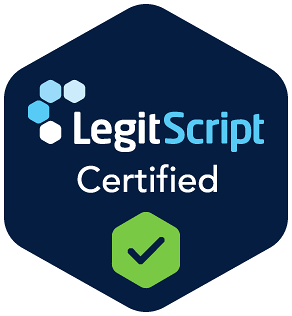.jpg)
Addressing Co-Occurring Disorders in Substance Abuse Treatment at Spark Wellness
Substance abuse and mental health challenges often go hand in hand. When an individual struggles with both a substance use disorder (SUD) and a mental health condition, it’s referred to as a co-occurring disorder or dual diagnosis. At Spark Wellness, with locations in Yardley and Elkins Park, PA, we understand the complexities of co-occurring disorders and the importance of addressing both issues simultaneously for comprehensive recovery.
What Are Co-Occurring Disorders?
Co-occurring disorders occur when an individual experiences a substance use disorder and a mental health condition, such as depression, anxiety, bipolar disorder, or PTSD, at the same time. These conditions are often intertwined, with each exacerbating the other. For example:
- A person may use substances as a way to self-medicate symptoms of mental health conditions.
- Substance abuse can worsen existing mental health issues or even contribute to the development of new ones.
It’s a cycle that can be difficult to break without specialized care that addresses both the addiction and the underlying mental health condition.
Why Is It Important to Address Both Conditions?
1. Improved Outcomes
Treating one condition without addressing the other often leads to incomplete recovery. For example, if addiction is treated without addressing the underlying anxiety or depression driving substance use, the risk of relapse increases. Comprehensive treatment provides a stronger foundation for long-term recovery.
2. Breaking the Cycle
Co-occurring disorders often create a cycle where mental health symptoms fuel substance use, and substance use worsens mental health. Addressing both conditions helps break this cycle, allowing individuals to achieve stability and healing.
3. Addressing Root Causes
Mental health conditions often underlie substance abuse. For instance, trauma or unmanaged stress may lead to substance use as a coping mechanism. Identifying and treating these root causes is crucial for sustainable recovery.
4. Reducing Stigma
Co-occurring disorders can be misunderstood and stigmatized, making it harder for individuals to seek help. Comprehensive treatment recognizes the connection between mental health and substance use, reducing stigma and encouraging individuals to pursue the care they need.
The Challenges of Co-Occurring Disorders
Treating co-occurring disorders requires a nuanced approach. Challenges include:
- Complex Diagnoses: Symptoms of addiction and mental health conditions often overlap, making diagnosis more complicated.
- Integrated Treatment: Care must address both conditions simultaneously to prevent one from undermining the other.
- Individualized Care: No two individuals experience co-occurring disorders in the same way, so treatment must be tailored to meet unique needs.
Comprehensive Recovery Through Integrated Care
The most effective way to treat co-occurring disorders is through integrated care that combines substance abuse treatment with mental health services. This approach includes:
- Therapeutic Interventions: Evidence-based therapies like Cognitive Behavioral Therapy (CBT) and Dialectical Behavior Therapy (DBT) help individuals understand and manage both addiction and mental health symptoms.
- Medication Management: In some cases, medications can help stabilize mental health symptoms, making it easier to focus on recovery.
- Supportive Environment: A compassionate and understanding treatment setting fosters healing and reduces the stigma surrounding co-occurring disorders.
- Education and Skills Development: Teaching individuals and their families about co-occurring disorders helps build coping skills and a supportive recovery network.
The Spark Wellness Approach to Co-Occurring Disorders
At Spark Wellness, we are committed to providing holistic and integrated care for individuals with co-occurring disorders. By addressing both substance use and mental health challenges, we help clients build a foundation for sustainable recovery and improved quality of life.
Our team works closely with each individual to create personalized treatment plans that address their unique needs. Through therapy, group support, and education, we empower clients to break free from the cycle of addiction and mental health challenges.
If you or a loved one is struggling with co-occurring disorders, contact Spark Wellness in Yardley or Elkins Park, PA. Together, we can work toward comprehensive healing and lasting recovery.
Recovery articles for you
.jpg)
Understanding the Connection Between Trauma and Substance Use
.jpg)
The Intersection of Technology and Mental Health: Navigating Digital Well-being
.jpg)



